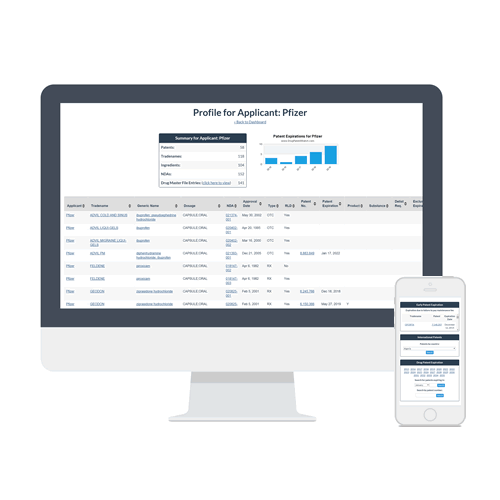In recent years, the healthcare industry has been on the brink of a technological revolution, with blockchain technology emerging as a game-changer. This innovative technology, best known for its role in cryptocurrencies, is now poised to transform the way we manage and secure medical data, streamline operations, and improve patient care. But how exactly will blockchain revolutionize the healthcare industry? Let’s dive deep into this exciting topic and explore the myriad ways blockchain is set to reshape the landscape of healthcare as we know it.
Table of Contents
Understanding Blockchain Technology in Healthcare
Before we delve into the transformative potential of blockchain in healthcare, it’s crucial to understand what blockchain technology is and how it works in this context. At its core, blockchain is a decentralized, distributed ledger technology that allows for secure, transparent, and tamper-resistant record-keeping.
What is Blockchain?
Blockchain is essentially a chain of blocks, where each block contains a set of transactions or data. Once a block is added to the chain, it becomes immutable, meaning it cannot be altered or deleted. This characteristic makes blockchain incredibly secure and resistant to fraud.
How Does Blockchain Work in Healthcare?
In healthcare, blockchain can be used to create a secure, decentralized network for storing and sharing medical data. Each transaction or piece of data added to the blockchain is verified by multiple nodes in the network, ensuring its authenticity and integrity.
“Blockchain technology has the potential to transform healthcare, from securing patient data to reducing the risks for data breaches.”[2]
This quote from a MobiHealthNews article highlights the transformative potential of blockchain in addressing some of the most pressing challenges in healthcare today.
The Current State of Healthcare Data Management
To fully appreciate the revolutionary impact of blockchain on healthcare, we need to understand the current state of healthcare data management and its inherent challenges.
Fragmented Systems and Siloed Data
One of the biggest challenges in healthcare today is the fragmentation of data across various systems and institutions. Patient records, medical histories, and treatment plans are often scattered across different healthcare providers, making it difficult to get a comprehensive view of a patient’s health.
Data Security and Privacy Concerns
With the increasing digitization of healthcare records, data security and privacy have become major concerns. Healthcare organizations are prime targets for cyberattacks, with sensitive patient data at risk of being compromised.
Inefficiencies in Data Sharing and Interoperability
The lack of standardization and interoperability between different healthcare systems often leads to inefficiencies, delays in treatment, and potential medical errors.
Blockchain’s Promise: Revolutionizing Healthcare Data Management
Now that we’ve set the stage, let’s explore how blockchain technology promises to address these challenges and revolutionize healthcare data management.
Enhanced Data Security and Privacy
Blockchain’s decentralized and encrypted nature makes it incredibly difficult for hackers to compromise data. Each transaction is verified and recorded across multiple nodes, creating an immutable audit trail.
According to a study by Grandview Research, “The global blockchain technology in healthcare market size was estimated at USD 7.04 billion in 2023 and is expected to grow at a CAGR of 63.3% from 2024 to 2030.”[3] This rapid growth is largely driven by the increasing need for secure and transparent data management systems in healthcare.
Improved Interoperability and Data Sharing
Blockchain can serve as a universal language for healthcare systems, enabling seamless data sharing between different providers and institutions. This improved interoperability can lead to better coordinated care and more informed decision-making.
Patient-Centric Data Ownership
With blockchain, patients can have greater control over their health data. They can decide who has access to their information and for what purpose, putting the power back in the hands of the patient.
Case Study: MedicalChain
MedicalChain is a leading example of a company working to implement blockchain-enabled Electronic Medical Records (EMRs). Their system allows patients to see every time their medical records are updated and give explicit consent every time they are shared with healthcare providers or others[1].
Key Applications of Blockchain in Healthcare
Let’s now explore some of the key areas where blockchain is set to make a significant impact in healthcare.
Electronic Health Records (EHRs)
Blockchain can revolutionize the way we manage and share Electronic Health Records. By creating a secure, decentralized database of patient records, blockchain can ensure that healthcare providers have access to up-to-date and accurate patient information, while patients maintain control over their data.
Supply Chain Management in Healthcare
Blockchain can bring unprecedented transparency and traceability to healthcare supply chains. From pharmaceutical manufacturing to the delivery of medical equipment, blockchain can help prevent fraud, ensure the authenticity of medical products, and streamline inventory management.
“Blockchain technology addresses this risk by creating an environment where patient data is fragmented and distributed across a network, making it nearly impossible to hack or alter without detection.”[2]
This quote from MobiHealthNews underscores the potential of blockchain in reducing the risk of data breaches, a critical concern in healthcare supply chain management.
Clinical Trials and Research
Blockchain can streamline the clinical trial process by providing a secure platform for sharing research data, ensuring the integrity of trial results, and even facilitating patient recruitment.
Claims and Billing
By automating and securing the claims and billing process, blockchain can reduce fraud, speed up payments, and lower administrative costs for healthcare providers and insurers.
Real-World Examples of Blockchain in Healthcare
To better understand the practical applications of blockchain in healthcare, let’s look at some real-world examples and case studies.
Case Study: BurstIQ
BurstIQ is at the forefront of using blockchain to revolutionize patient data management. Their platform provides a secure and decentralized environment for storing, sharing, and managing sensitive health data, including patients’ health records, social security numbers, and bank account details[4].
Case Study: MediLedger
MediLedger is using blockchain to transform pharmaceutical supply chain management. Their platform enables the execution of inter-company business rules, ensures valid data reception, and automates resubmissions. Major companies like Johnson & Johnson and Premier Inc. are already part of the MediLedger network[4].
Case Study: Robomed Network
The Robomed Network combines blockchain with AI to revolutionize telemedicine and remote monitoring. This innovative approach is enhancing the delivery of remote healthcare services, making them more secure and efficient[4].
Challenges and Considerations in Implementing Blockchain in Healthcare
While the potential of blockchain in healthcare is immense, it’s important to acknowledge the challenges and considerations that come with its implementation.
Regulatory Compliance
Healthcare is a highly regulated industry, and any new technology must comply with existing regulations such as HIPAA in the United States. Ensuring that blockchain implementations meet these regulatory requirements can be complex.
Integration with Existing Systems
Integrating blockchain with existing healthcare IT systems can be challenging and may require significant investment in infrastructure and training.
Scalability and Performance
As the volume of healthcare data continues to grow, ensuring that blockchain systems can scale effectively while maintaining performance is a key consideration.
Data Standardization
For blockchain to be truly effective in healthcare, there needs to be standardization in how data is formatted and shared across different systems and institutions.
The Future of Blockchain in Healthcare
As we look to the future, it’s clear that blockchain has the potential to fundamentally transform the healthcare industry. Let’s explore some of the exciting possibilities on the horizon.
Personalized Medicine
Blockchain could facilitate the secure sharing of genomic data, paving the way for more personalized treatment plans and targeted therapies.
AI and Blockchain Integration
The combination of blockchain and artificial intelligence could lead to more accurate diagnoses, predictive healthcare, and optimized treatment plans.
Global Health Initiatives
Blockchain could play a crucial role in global health initiatives by enabling secure, transparent tracking of medical supplies, vaccines, and aid distribution.
Key Takeaways
As we’ve explored throughout this article, blockchain technology has the potential to revolutionize the healthcare industry in numerous ways:
- Enhanced data security and privacy
- Improved interoperability and data sharing
- Patient-centric data ownership
- Streamlined supply chain management
- More efficient clinical trials and research
- Automated and secure claims and billing processes
While challenges remain, the potential benefits of blockchain in healthcare are too significant to ignore. As the technology continues to mature and more real-world applications emerge, we can expect to see blockchain playing an increasingly important role in shaping the future of healthcare.
FAQs
- Q: How does blockchain ensure data privacy in healthcare?
A: Blockchain uses advanced encryption techniques and decentralized storage to protect data. Each transaction is verified across multiple nodes, making it extremely difficult for unauthorized parties to access or alter the information. - Q: Can blockchain help reduce healthcare costs?
A: Yes, blockchain can potentially reduce healthcare costs by streamlining administrative processes, reducing fraud, and improving efficiency in areas like supply chain management and claims processing. - Q: What is the biggest challenge in implementing blockchain in healthcare?
A: One of the biggest challenges is integrating blockchain with existing healthcare IT systems and ensuring compliance with regulatory requirements like HIPAA. - Q: How can blockchain improve clinical trials?
A: Blockchain can enhance clinical trials by providing a secure platform for sharing research data, ensuring the integrity of trial results, and facilitating patient recruitment and consent management. - Q: Is blockchain technology ready for widespread adoption in healthcare?
A: While blockchain shows great promise, it’s still in the early stages of adoption in healthcare. However, with ongoing research and development, we can expect to see more widespread implementation in the coming years.
Sources cited:
[1] https://stlpartners.com/articles/digital-health/5-blockchain-healthcare-use-cases/
[2] https://www.mobihealthnews.com/news/contributed-blockchain-healthcare-and-enhancing-security-and-transparency
[3] https://www.grandviewresearch.com/industry-analysis/blockchain-technology-healthcare-market
[4] https://www.linkedin.com/pulse/top-5-real-world-use-cases-blockchain-healthcare-organizations


